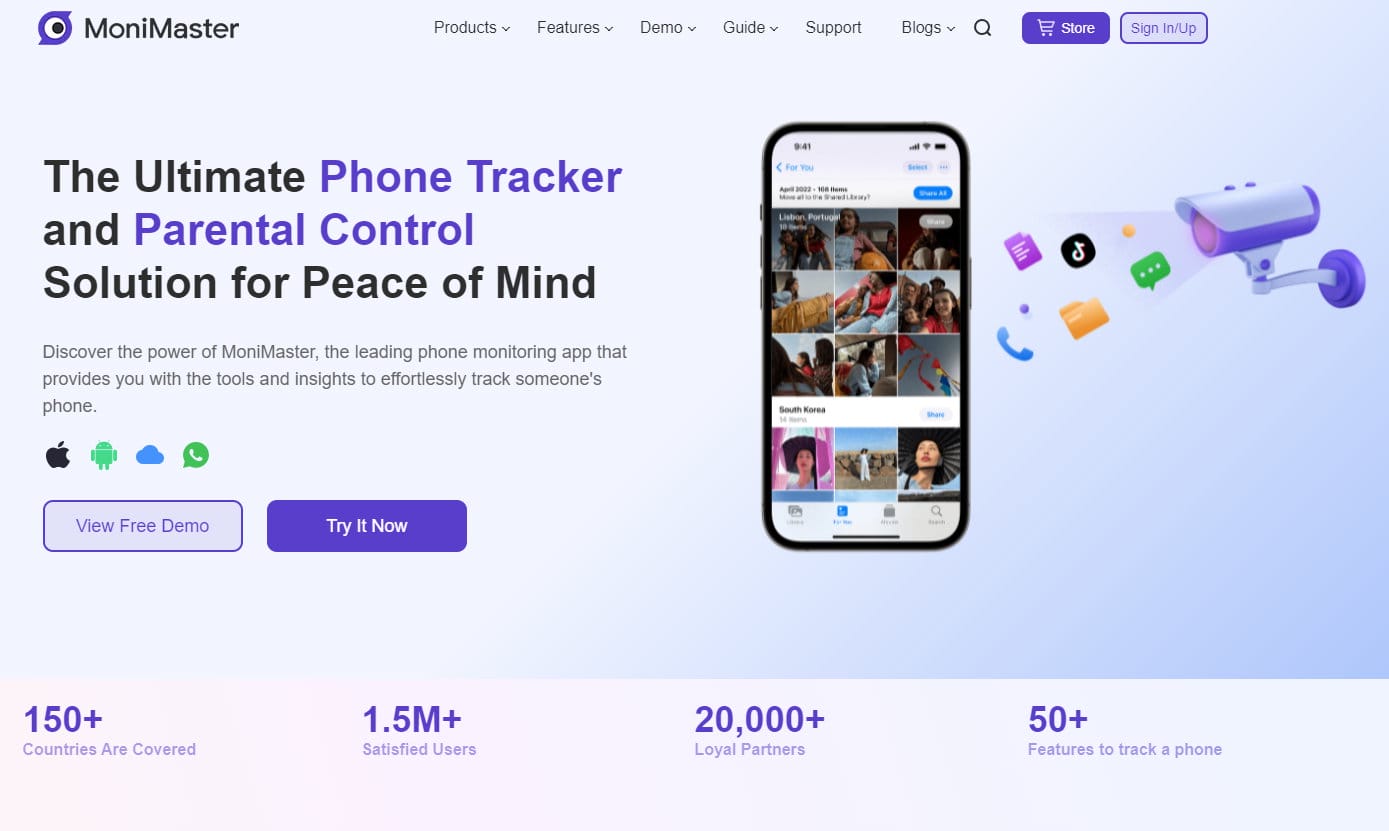WhatsApp is a messaging platform that connects people worldwide through instant chat features. The phenomenon of sexting is a growing problem for parents as it involves the exchange of sexually suggestive or explicit messages, photos or videos .
Recently, WhatsApp has emerged as a popular sexting platform , resulting in inappropriate conversations and sharing of explicit images.

Photo by Dimitri Karastelev @dkfra19, via Unsplash
Although sexting can be a normal part of adolescent exploration, it also carries serious emotional and legal consequences. Parents should be aware of the potential risks associated sexting on WhatsApp
These include unwanted sharing of explicit content , cyberbullying and possible exploitation . We've put together all the information parents need to know about WhatsApp sexting, as well as recommendations for dealing with suspicions about their child's involvement.
As a parent, you are naturally concerned about the risks of WhatsApp sexting and want to protect your children. This comprehensive guide will give you an in-depth understanding of WhatsApp sexting and give you practical tips on how to tackle the problem effectively.
What is sexting?
Individuals engage in sexting by sending sexually exciting texts, GIFs, images, emojis, or videos online, most often through instant messaging apps. If you're wondering whether it's okay to send messages like this, read on.

Image source: Freepik
Typically, adults and couples in dating use sexting in a consensual and intimate way (e.g. in long-distance relationships or as titillating foreplay ).
However, this can also have serious legal and personal consequences, especially when minors are involved. In most states, sending or receiving explicit images of people under the age of consent is considered child pornography and is subject to strict legal consequences.
Why is sexting on WhatsApp so popular?
WhatsApp is becoming increasingly popular for private messaging, including sexual content, due to its secure and unique privacy settings. Both young adults and other WhatsApp users feel safe because their conversations and media are encrypted and protected.
In addition to security, WhatsApp introduced the View Once that allows users to send photos and videos that automatically disappear once opened by the recipient. This feature offers users more control over their privacy, especially when sharing sensitive or confidential information.
The View Once feature is particularly popular for sexting, the exchange of sexually suggestive or explicit messages, photos or videos. This is likely due to the perceived anonymity and security of this feature, as such messages are less likely to be screenshotted or saved.
Common motives and incentives for young people to engage in sexting are:
Peer pressure/social pressure
The need for recognition, popularity, or status among friends can often motivate teens to engage in risky behavior.
When peers practice sexting, a teen may feel pressured to do the same to avoid rejection.
Low risk perception
Teens may view WhatsApp as a supposedly “safe” way to explore their sexuality because it feels private. However, they underestimate the potential consequences.
Sexual curiosity
During puberty, teenagers often experience increased sexual curiosity. WhatsApp allows them to express their desires.
impulsiveness
The development of teenagers' brains is a process that is far from complete. Impulse control in particular continues to change during this phase and will only be fully mature as we get older.
This fact may explain why teenagers often act on sexual urges without considering the long-term effects.
Relationship building
Some teens use sexting to be flirtatious, express affection for someone, or take their relationships to a more intimate level.
Strengthening self-confidence
Sending a revealing self-portrait can make a teenager feel attractive, desirable, and more sexually confident.
boredom
Teens may engage in WhatsApp sexting out of sheer boredom, to pass the time and participate in an exciting or taboo activity.
The dangers of WhatsApp sexting for children, minors and young people

Photo by Rachit Tank @rachitank, via Unsplash
Despite WhatsApp's security, sexting on WhatsApp poses significant risks , especially for children. Parents should be aware of this danger. Of particular concern is the psychological impact it can have on young people.
Teens who engage in sexting may not appreciate the emotional toll it can take on their mental well-being. Possible consequences include feelings of guilt , shame , regret , and fears about sharing or revealing their intimate messages or images.
Fear of negative consequences can lead to emotional stress and anxiety and affect self-esteem and overall mental health. It is important that parents educate their children about these potential risks and help them use social media responsibly.
relationship problems
Sexting can cause significant damage to both romantic and platonic relationships between teenagers.
Once the explicit messages are shared with others without consent, feelings of betrayal, hurt and anger can arise. This can damage their relationships and make it difficult to rebuild trust that has already been broken.
Likewise, this feeling of vulnerability may make teens hesitant to communicate and open up to others.
The internet doesn’t forget: permanent digital traces
Sharing private content can have unforeseen consequences. Once sent, you lose control of them and they can easily be shared or published online, potentially causing regret and embarrassment.

Photo by haritanita, via Freepik
Another major danger of sexting is the ease with which digital content can be shared and reproduced. Once a sext is sent, the recipient is in control of it and can instantly screenshot it, forward it, or even post it online.
This means that even if you send a sext to a trusted person, there is no guarantee that it will remain private. The consequences of leaked sexts can be serious and far-reaching. Sexts can spread quickly on social media and reach large audiences within seconds.
This leads to humiliation, embarrassment and reputational damage. In some cases, leaked sexts can even result in legal consequences, especially if minors are involved.
Revenge porn
Sometimes, when a relationship ends in a terrible way, teens may share intimate footage of themselves naked to humiliate their former partner and seek revenge.
This type of “revenge porn” can have devastating effects on the people involved.
Bullying and harassment
Teens may be mocked, pressured, or blackmailed by peers, unknown people online, or blackmailers if intimate images are shared publicly.
Child pornography charges
Young people can be prosecuted if they produce, distribute or possess explicit images of other minors as this constitutes child pornography.
Sexual predators exploit sexting
Sexual predators actively use social media to prepare young people for sexual exploitation. They gain influence by showing explicit images.
Damage to reputation and spoiled future prospects
Sexting is spreading quickly online, leaving behind digital records. If this comes to light, it can have a negative impact on a young person's social status, university admission or career prospects.
Emotional and mental health issues

Photo by Markus Winkler @@markuswinkler, via Unsplash
The experiences of teenagers who engage in sexting and can subsequently experience humiliation, shame, anxiety, depression and powerlessness are extremely distressing. Some teenagers even think about harming themselves or committing suicide.
It is clear that sending sexual messages carries serious risks. These risks may accompany teenagers throughout their lives. For this reason, it is extremely important for parents to approach this issue responsibly.
Signs your child may be involved in WhatsApp sexting
It is of great importance to recognize the signs that could indicate that your child is involved in WhatsApp sexting to ensure their safety and well-being.

Recognize the signs. Photo by Ravi Sharma @ravinepz, via Unsplash
Although some of these signs are not exclusive to sexting, overall they can raise concerns about your child's online activities.
Changes in behavior or emotional state
If your child's emotional state suddenly changes, such as increased irritability, withdrawal, or depression, it is important to be mindful. Stress from sexting or worries about disclosing their messages can cause emotional turmoil.
Additionally, if your child becomes evasive or unwilling to talk about their online activities, it could indicate that they are hiding something. In this case, you should check it out.
Increased secrecy surrounding digital devices
If your kids use multiple private or hidden messaging apps, there's a chance they're trying to hide their conversations from you. Your child can lock their devices and use app lock on the WhatsApp application so that you cannot access their content.
It's important to talk to your child about the importance of having open and safe conversations between the two of you. Ask them to give you access to their devices and apps so you can monitor their conversations. Explain to them the reason for keeping these conversations open.
Unusual data usage
Be mindful of how your child uses data. If data consumption suddenly increases without a clear explanation, it could indicate heavy use of data-intensive activities, such as sharing images or videos via WhatsApp.
WhatsApp sexting codes and their meanings
Nowadays, children use various codes that are difficult for adults to understand. What we dismiss as a typo could actually be a sex code they use to communicate with each other.
Stay informed about WhatsApp's secret language around sexual content and take proactive measures to protect your child in the digital world.
- LMIRL : It means we meet in real life.
- CU46 : See you for sex.
- CODE9 : Parents are nearby.
- KPC : Let the parents remain clueless.
- 99: The parents are gone.
- WYCM : Please call me.
- IWSN : I want sex now.
- ADR : Address
- 53X : sex
- P4P / Image by Image: Request to exchange photos
- WYRN : What are you wearing right now
- GNOC : Get naked in front of the camera
There are many more codes like this.
How can you help your child avoid WhatsApp sexting?
Children's use of the Internet poses numerous risks and dangers that parents should be aware of. A particularly widespread problem is sexting, particularly on messaging platforms such as WhatsApp.
It is important that parents take active steps to help their children avoid such inappropriate behavior.
01 Have open communication
Please don't wait until the topic of sexting comes up to talk to your child about it. Discuss online safety and responsible use of technology early on and make it a regular topic of conversation.
Clearly explain the age-appropriate limits you want your child to adhere to when using WhatsApp. Make sure you understand that sexting is inappropriate and will not be tolerated.
02 Inform about risks
Inform your child about the possible dangers of sexual text messages on WhatsApp. Explain to them the emotional and psychological consequences as well as the long-term storage of digital information.
Above all, they should be made aware that there may also be legal penalties. Make it clear that their actions online can have an impact on their real lives.
03 Teach them how to report inappropriate behavior
Encourage children to report suspicious contacts immediately. Make it clear that quick intervention can prevent further damage. Emphasize how important their voices are and that they can believe you.
Illustrate the concept with specific examples of inappropriate behavior in everyday life. Boost their confidence by engaging them in role-playing exercises that involve practicing reporting scenarios.
04 Teach consent and respect
It is important to emphasize that sexting should only take place if both parties agree - sending unwanted images is unacceptable.
It is equally important to emphasize self-esteem and respect for our partners in all types of relationships.
03 Share real life examples
Present reports of sexting cases that have turned negative - such as prosecution for possession of child pornography, sharing images online, or even suicide as a result of bullying. Clarify real-world consequences to increase risk awareness.
04 Set clear rules
Set clear guidelines and prohibit sexting until the age of 18 - but without creating shame. Explain that it's about caring, not control.
05 Increase self-esteem
Acknowledge their individual ways - demonstrate to them that they are much more than just their physical body.
Support them in shared endeavors that they can be proud of to develop their talents and self-confidence.
06 Monitor WhatsApp
Use WhatsApp parental control apps to discreetly monitor WhatsApp activity. This will help you stay up to date on issues. Let them know that you have the right to check their phones to encourage responsible use.
07 Restrict access
Set limits on how long you can use WhatsApp (and the web browser) to reduce the time of unattended digital temptations.
Ensure devices are used in shared family spaces and not alone in the bedroom.
08 Ask about online use
Have occasional informal conversations to get additional information about their interpersonal relationships, social media activities, concerns, and fears. Be alert for signs such as isolation, secretiveness, or emotional distress.
09 Be one step ahead of the trends
Familiarize yourself with the online habits of the younger generation by using forums like Common Sense Media to stay up to date.
Make sure children are informed about potentially dangerous challenges and apps early on, before they have to engage in them.
How can parents check our children's WhatsApp messages?
Well, the easiest way is to ask for his phone. However, this requires a strong relationship of trust and a willingness to let parents enter one's own privacy. This constellation is often not the case, especially among teenagers.
If you as a parent suspect that your children are involved in sexting activities that could potentially harm them, there is another possibility.
You can log in to the child's account from your desktop or use online tools to check their WhatsApp messages. There are a number of tools and apps for concerned parents .
MoniMaster

One of the best online tools is MoniMaster for WhatsApp. It is a great and simple tool that allows you to monitor WhatsApp chats and activities within minutes.
The following functions are included in the WhatsApp MoniMaster Tools:
Full Chat History:
MoniMaster's Full Chat History feature allows you to view the entire history of your WhatsApp chats. This includes text messages, multimedia content, voice messages, and timestamps for messages sent and received.
Stealth mode:
MoniMaster 's stealth mode feature ensures unobtrusive monitoring on the target device without the user's knowledge or intervention. The app runs unnoticed in the background and thus enables discreet observations.
Detailed report:
MoniMaster for WhatsApp's detailed reporting feature provides comprehensive information about the target user's activities. This includes messages, calls, media files, contacts and group chats.
This information is presented in a clear and well-structured report that allows for easy monitoring and analysis.
Famisafe Parental Control App

Famisafe is a leading parental control app that offers parents great tools to monitor and manage their teens' WhatsApp activities:
- View all WhatsApp chats, even deleted messages
- Receive notifications about inappropriate photos or videos
- Set time limits for WhatsApp usage
- Block WhatsApp at specific times, such as bedtime
- Monitor messages in apps other than just WhatsApp
- Access web filters, keyword alerts and location tracking
With Famisafe, you can discreetly keep an eye on your teen's WhatsApp sexting risks without needing their phone. Your teen won't notice that they're being monitored in the background.
Famisafe's main advantage over native WhatsApp controls is complete transparency about your teen's messages across all apps. You also have extensive options for restricting and filtering inappropriate content.
For parents worried about WhatsApp sexting, Famisafe Parental Control offers the right balance of monitoring and control while promoting trust through open communication with your teen.
AirDroid Parental Control

Another tool is AirDroid Parental Control . This also allows parents to monitor their children's conversations. Parents also receive a detailed overview of their children's activities on WhatsApp and social media apps.
Furthermore, the “Social Content Detection” introduced. This feature notifies parents immediately when their children send inappropriate content. It provides parents with an in-app alert system to receive notifications of suspicious activity and allows users to report explicit or offensive content.
There is a zero tolerance policy for content not suitable for children.
detailed reviews of different parental control apps (cell phone tracker and parental control apps ) at FoneSpy.org .
What to do if your teenager is sexting on WhatsApp? A recommendation for action
If you find that your teen is already actively sexting on WhatsApp, stay calm and follow these steps:
- Make sure your child knows that you are on his side and only want to protect him. Don't lash out in anger.
- Have a constructive discussion to understand why they are sexting and whether external pressures are at play.
- Delete any inappropriate photos on her phone to contain the situation.
- Change your WhatsApp privacy settings to control who can contact you.
- Monitor her WhatsApp chats and social media closely for a while to prevent further sexting.
- Block websites or apps that may use them to send inappropriate images.
- Enforce consequences such as grounding or temporarily taking away the phone.
- Talk to other parents if peers are involved. Get counseling support if needed.
- Report harassment or abuse by others to the police.
The goal is to improve behavior and provide them with unconditional emotional support despite this difficult situation.
Healthy Ways for Teens to Explore Their Sexuality
Instead of shaming teens' sexual curiosity, guide them toward healthier options like:
- Comprehensive sex education books and online resources
- Creative writing or art as expression
- Anonymous online youth forums on the topic of sexual development
- Advice from a youth mentor or therapist
- Channel energy into sports, hobbies and activities
- Focus on emotional intimacy before physical contact with partners
- Learn about consent, respect, and building ethical relationships
Common questions about WhatsApp sexting among teenagers
Is sexting between teenagers considered child pornography?
Yes, photos without clothing or explicit images of people under 18 can be considered child pornography. Teenagers who create, send or share such recordings of other teenagers put themselves at risk of prosecution for the production and distribution of child pornography.
Can you recover deleted WhatsApp sexting messages?
It's possible that your teen is using WhatsApp to send intimate messages and then delete them. However, there are forensic data recovery apps that can recover deleted WhatsApp messages as well as images and videos.
Should I ban WhatsApp on my teenager's phone?
A complete ban on WhatsApp could have a negative impact or lead to sexting being moved to other platforms. It makes more sense to combine monitoring WhatsApp usage with open discussions about sexuality. Screen time on WhatsApp should be limited as needed.
How can I tell if my teenager's WhatsApp account has been hacked?
Unexpected login locations, unsent messages, profile changes, and sudden contacts making suggestive comments could all indicate a possible hack attack on your WhatsApp account. This can lead to problems when exchanging sexual content.
What do I do if my teenager is blackmailed over WhatsApp sexting?
Make sure those affected are aware that they are the victim - do not blame them. Record any form of communication and immediately report it to the relevant app, website and also the police. Remove any intimate images that the blackmailer has access to.
Closing words
Sexting on WhatsApp and other apps is now a growing problem for teenagers who are comfortable with digital media. However, it is unrealistic to call for a ban on WhatsApp.
Instead, parents should have a constructive dialogue about sexuality and set wise rules for appropriate behavior. It is important that parents talk openly with their children about this topic.
By creating an open atmosphere where questions can be asked and concerns are taken seriously, they allow young people to feel more confident and express their thoughts.
This promotes an understanding of what sexting actually means and what consequences can be associated with it. Parents should also set clear rules for dealing with digital media.
These rules could include: no sharing of intimate images or messages without the consent of the other person; not put pressure on others or send harassing content; treat each other with respect, etc.
These guidelines make it clear what behavior is acceptable and what the limits are. To keep an eye on the safety of their children, parents can also use parental control apps.
These apps allow them to see, among other things, what type of messages their children are sending or receiving and how often this happens. This gives them an overview of whether their offspring is involved in inappropriate activities and can intervene if necessary.
Overall, as a society, we need to work together to teach teenagers how to use digital technology safely. This is the only way we can ensure that they are empowered to treat each other with respect and understand the associated risks of sexting.
By using compelling dialogue, we can help young people develop healthy attitudes toward sexuality and an awareness of the consequences of their actions in the digital world.

